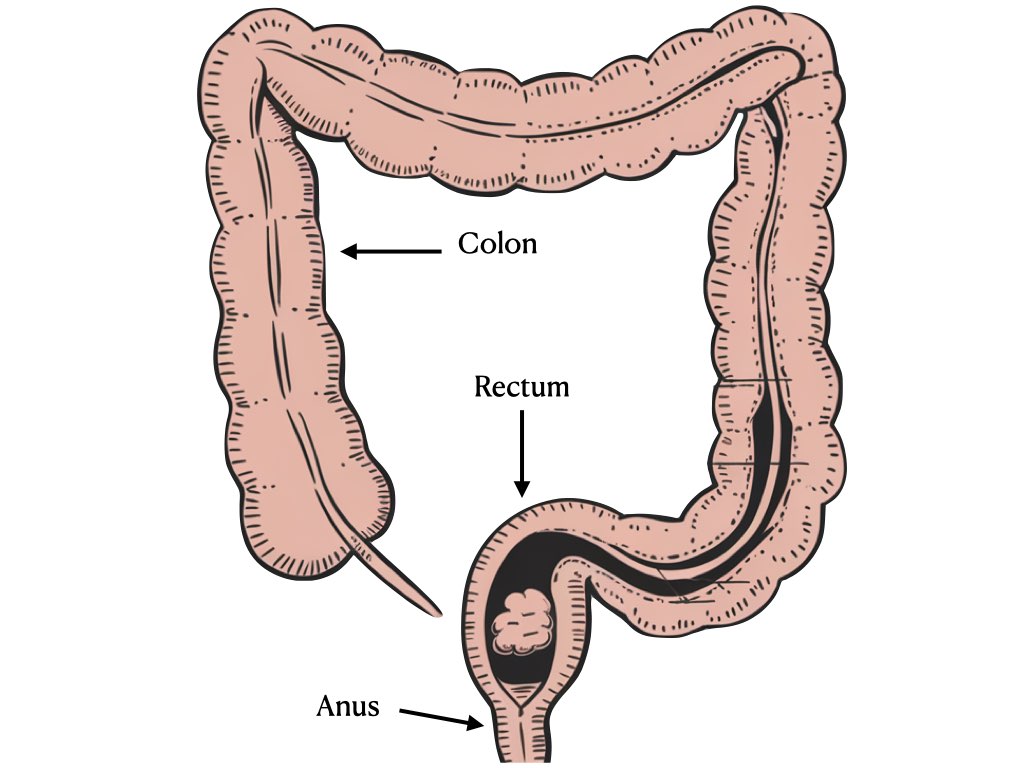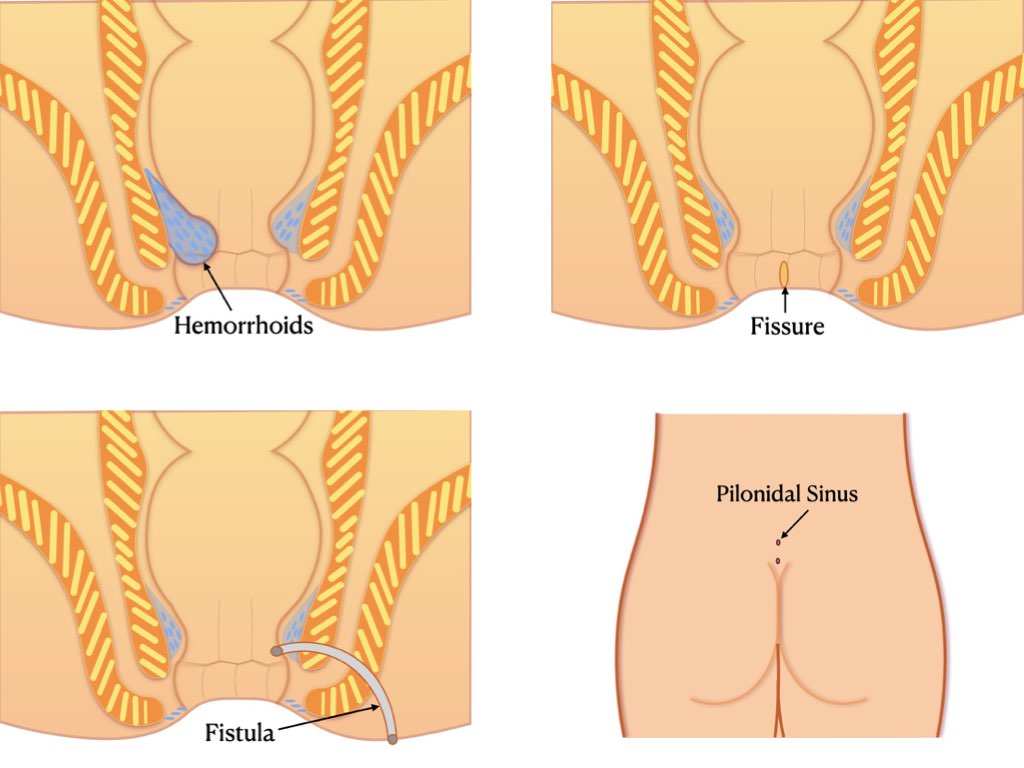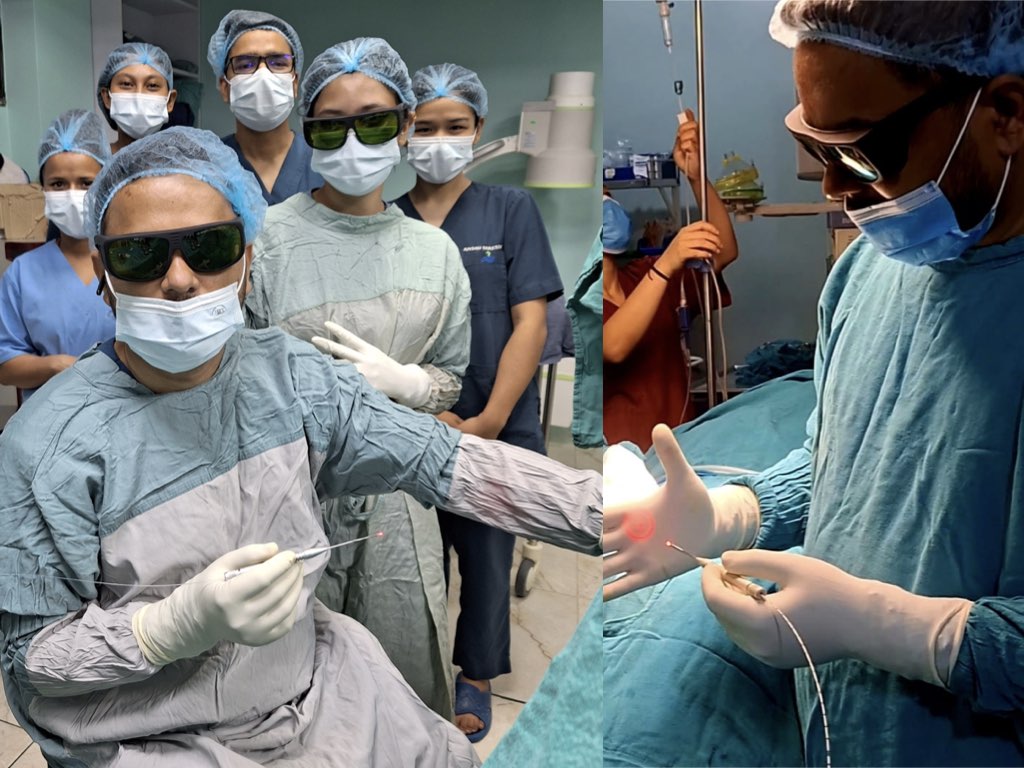Understanding Laser Treatment for piles (hemorrhoids), fissures, fistula and pilonidal sinus: It's benefits

Fig 1: Healthy diet and lifestyle play a crucial role in managing hemorrhoids
What is Laser Treatment?
Laser treatment in proctology uses focused laser energy to precisely target affected tissues. The laser beam can cut, vaporize, or coagulate tissue with minimal damage to surrounding healthy areas. This precision makes it an ideal choice for treating sensitive areas like the anal region.
Common Conditions Treated in Proctology by Laser Method
Proctologists treat various conditions including:
- Hemorrhoids (Piles)
- Anal Fissures
- Anal Fistulas
- Pilonidal Sinus

Fig 2: Understanding common proctological conditions and their management
Which laser is used to treat hemorroids (piles), fissure, anal fistula, and pilonidal sinus?
Diode Laser is used for treatment of hemorrhoids (piles), fissure, anal fistula and pilonidal sinus. The diode laser is versatile and commonly used for a variety of proctological procedures, including the treatment of hemorrhoids, anal fissures, and fistulas. Its ability to selectively target blood vessels reduces bleeding and promotes faster healing.

Fig 3: Modern laser treatment options for proctological conditions
Benefits of laser therapy in proctology compared to open surgery.
Laser therapy has emerged as a revolutionary treatment in proctology, offering several significant advantages over traditional open surgery:
- Minimally Invasive: Laser therapy is less invasive than open surgery, which means smaller incisions, reduced trauma to surrounding tissues, and minimal blood loss. This leads to faster healing and recovery times for patients.
- Reduced Pain and Discomfort: Patients undergoing laser therapy typically experience less postoperative pain compared to those who have open surgery. The precision of the laser minimizes nerve damage and inflammation, enhancing patient comfort during recovery.
- Shorter Hospital Stay: Laser procedures often allow for outpatient treatment or a significantly shorter hospital stay, which reduces healthcare costs and allows patients to return to their daily activities more quickly.
- Lower Risk of Complications: The precision and control provided by laser technology reduce the risk of complications such as infections, excessive bleeding, and tissue damage. This leads to a smoother recovery process.
- Enhanced Precision: Lasers provide high precision, enabling surgeons to target specific tissues accurately without affecting surrounding areas. This precision is particularly beneficial in delicate proctological procedures.
- Improved Cosmetic Outcomes: Due to smaller incisions and less tissue trauma, laser therapy typically results in minimal scarring and better cosmetic outcomes compared to open surgery.
- Less Postoperative Care: The reduced trauma and quicker healing associated with laser therapy often mean that patients require less postoperative care and fewer follow-up visits, making it a convenient option for both patients and healthcare providers.
- Versatility: Laser therapy is effective for a variety of proctological conditions, including hemorrhoids, anal fissures, and fistulas. Its versatility makes it a preferred choice for many proctological treatments.
In summary, laser therapy in proctology offers a less invasive, more precise, and efficient alternative to open surgery, leading to better patient outcomes, shorter recovery times, and reduced healthcare costs.
Recovery and Post-Treatment Care
Recovery after laser treatment is typically faster than traditional surgery. Most patients can return to normal activities within a few days to a week, depending on the condition treated. Post-treatment care usually includes:
- Regular sitz baths
- Proper hygiene maintenance
- Dietary modifications to ensure soft stools
- Prescribed medications for pain management
- Follow-up visits to monitor healing
Is this diode laser safe? What are the risks?
Diode lasers is considered safe for medical procedures, including those in proctology. However, as with any medical treatment, there are potential risks and side effects. Therefore, it shoulde be used by expert professionals.
- Tissue Damage: If not used correctly, the laser can cause damage to surrounding tissues. This is why it is crucial that the procedure is performed by an experienced surgeon.
- Infection: Any surgical procedure, including laser therapy, carries a risk of infection. Proper sterilization and postoperative care reduce this risk.
- Pain: While diode laser procedures generally result in less postoperative pain compared to traditional surgery, some discomfort is still possible.
- Scarring: Although minimal, there is still a possibility of scarring. Diode lasers typically result in less scarring than open surgery due to smaller incisions.
- Recurrence: There is a possibility that the treated condition could recur, requiring further treatment. This is a consideration with all types of medical procedures.
In Conclusion: While diode laser therapy in proctology is generally safe and offers many advantages over traditional surgery, it is not without risks. These risks are typically low and manageable with proper technique, patient selection, and postoperative care. Patients should discuss potential risks and benefits with their healthcare provider to make an informed decision.
Remember: This article is for general information only. Follow your doctor's advice according to your personal health condition.
Consult with Dr. Surendra Shah
Are you suffering from hemorrhoids?
Consult with Dr. Surendra Shah for expert opinion and treatment of hemorrhoids (piles)
Thanks for reading this section!
